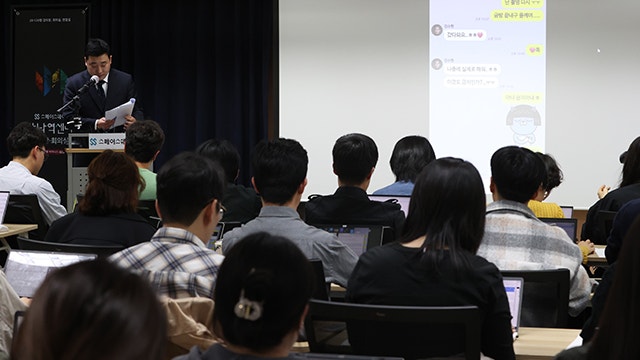
Why Stalking Allegations Are Important for Foreigners in Korea
Hello there! If you're an international reader interested in Korea, you might want to pay attention to recent legal developments that affect the nation's social media landscape. Events like stalking allegations can shape the digital environment and how foreigners interact within it.
The news surrounding the late Kim Sae-ron's family filing additional charges against popular YouTuber Lee Jin-ho has sparked discussions about privacy, harassment, and the implications of social media within Korea. Understanding these dynamics is crucial for anyone wanting to navigate life in Korea smoothly.
🌏 What's happening in Korea? (Quick overview)
Recently, the family of the late actress Kim Sae-ron has confirmed that they have filed a complaint against YouTuber Lee Jin-ho for alleged stalking. This action follows their previous defamation suit against him. Legal representatives expressed concern that Lee has been continuously exposing sensitive information about the family, leading to significant emotional distress.
💡 Why this matters for foreigners? (Impact analysis)
For foreigners living in Korea or planning to visit, awareness of such incidents can influence how you perceive and interact with social media. The situation highlights the complexities of personal privacy in the age of digital fame and the potential repercussions of online actions. Understanding these nuances can help foreigners better navigate their online interactions.
📌 How to take advantage of this? (Step-by-step guide, if applicable)
While this case may not have direct applications for most foreigners, it underscores the importance of maintaining a respectful online presence. Here are some tips:
- Be mindful of the information you share about yourself and others on social media.
- If engaging in discussions about sensitive topics, choose your words carefully to avoid misunderstandings.
- Stay informed about local laws regarding online behavior—what might be acceptable in your country may not be in Korea.
🇰🇷 Understanding Korea's system (Cultural & bureaucratic insights)
The legal landscape in Korea can be intricate, especially regarding defamation and privacy rights. Under Korean law, unwarranted exposure of personal information can lead to serious charges, but interpreting these laws requires cultural sensitivity. It’s essential to respect local customs and expectations around privacy and consent when living or visiting Korea.
🌟 Tips for foreigners living in Korea
To stay safe and avoid misunderstandings in Korea:
- Familiarize yourself with local laws regarding defamation and privacy.
- Engage in communities that promote understanding of Korean culture and legal matters.
- Keep your social media posts professional and free from sensitive content that might provoke negative reactions.
🔮 What's next? (Future trends & additional insights)
The ongoing saga of social media personalities in Korea may lead to evolving narratives around privacy and safety. As more cases arise, there could be increased scrutiny on content creators and tougher regulations on the dissemination of personal information online. It’s advisable for anyone involved in social media to stay ahead of these trends by continually educating themselves.
🇰🇷 Learn Korean from this Article!
Improve your Korean language skills with these key phrases from the article:
🔤 Korean Phrase 1: "스토킹 혐의"
🔤 Pronunciation: "seutoking hyeom-ui"
🔤 English Translation: "stalking charges"
🔤 Usage Tip: Use this phrase when discussing incidents related to harassment or stalking.
🔤 Korean Phrase 2: "명예훼손"
🔤 Pronunciation: "myeongyeohaeson"
🔤 English Translation: "defamation"
🔤 Usage Tip: This term is useful when discussing legal issues regarding false information about someone.
🔤 Korean Phrase 3: "고소장"
🔤 Pronunciation: "goso-jang"
🔤 English Translation: "complaint" or "lawsuit document"
🔤 Usage Tip: This phrase is relevant when talking about legal actions taken against someone.
🙋 Essential FAQs for Foreigners
Can foreigners participate or apply?
Yes, foreigners can engage with legal processes in Korea if they experience similar issues, but it's advisable to consult with a local attorney.
Do I need to know Korean for this?
While it's beneficial to know some Korean, many legal professionals can assist in English if you find yourself in a legal situation.
Where can I find official details?
Official information on laws and legal procedures can be found on government websites or by consulting local legal authorities.
In conclusion, staying informed about such incidents allows you to navigate life in Korea with greater awareness and responsibility. Don't hesitate to engage with local communities and resources that contribute to understanding these important discussions.
📱 Get the BeraKorean App & Stay Updated!
Want to improve your Korean skills and stay informed about life in Korea? Download the BeraKorean app for exclusive content:
- 📱 Android: Download on Google Play
- 🍎 iOS: Download on App Store
📺 Follow us on BeraKorean YouTube for Korean lifestyle & language content!
🌏 Visit berakorean.com for more updates, news, and insights on living in Korea.
🔗 Read the Original Korean Article
Want to dive deeper? Check out the original article here:
📢 Tags
#KoreaNews #LifeInKorea #ForeignersInKorea #KoreaOpportunities #KoreaLiving #LearnKorean #KoreanLanguage